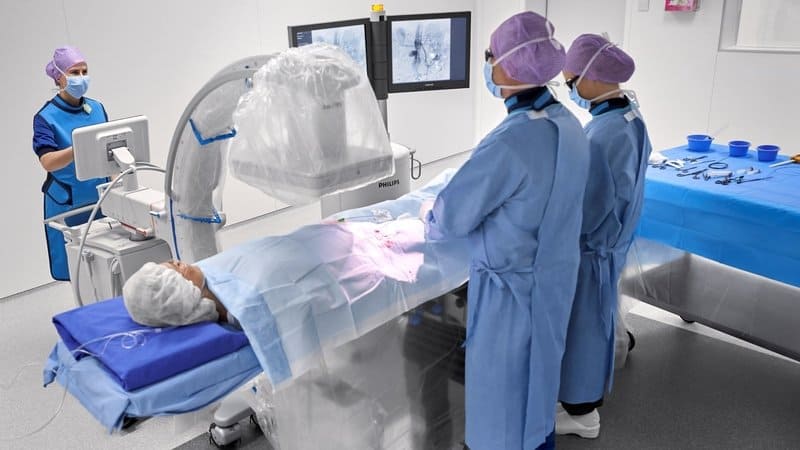Amid its continued struggles with the far-ranging recall of many of its CPAP and BiPAP machines and other respiratory devices, one area playing a significant role in keeping Philips’ head above water is its image-guided therapy segment.
In the company’s most recently reported financial results, for example, in the third quarter of 2021, the segment was one of only a handful to chart double-digit growth in both year-over-year sales and order intake.
It’s fitting, then, that Philips has made a point in the ensuing months to double down on its investments in the area.
Most recently, the Dutch conglomerate tapped surgical augmented intelligence developer Cydar Medical to add new artificial intelligence and 3D mapping capabilities to Philips’ Zenition mobile X-ray platform.
Through their partnership agreement, Cydar’s cloud-based software will be available for use in endovascular procedures performed with the help of the Zenition C-arm setup, which is brought into the operating room to provide real-time X-ray imaging feeds throughout a procedure.
Cydar’s flagship product, the FDA 510(k)-cleared and CE-marked Cydar EV Maps software, uses AI to help surgeons prepare for surgery by creating a 3D map planning out the procedure. That map is then overlaid onto the C-arm’s X-ray feed and uses computer vision technology to automatically stay within two millimeters of the live feed as it moves, making it easier for physicians to stick to the prepared surgical route.
Additionally, Cydar’s software adapts in real-time to changes during the procedure. For instance, if a guidewire or other instrument pushes up against a blood vessel, deforming its shape, the surgical team can quickly perform an AI-assisted update to the map to match the new anatomy.
The U.K.-based company says its technology significantly improves efficiency in the OR, cutting down procedure time by about 20%. That, in turn, leads to a 50% cut in radiation exposure, with solid reductions in fluoroscopy time and the amount of contrast agent needed for each procedure.
“The benefits of this combined solution, with integrated and enhanced procedure planning and visualization, include shorter and more predictable procedure times, reduced X-ray exposure to patients and staff and fewer injections of iodine dye—the leading cause of in-hospital kidney failure,” said Cydar CEO Paul Mussenden.
Another of Philips’ recent investments in its image-guided therapy business saw it offer up an undisclosed amount last month to acquire Vesper Medical.
Vesper’s minimally invasive peripheral vascular devices are intended to reopen blocked veins in the legs. They’ll be used alongside Philips’ live interventional imaging tech and ultrasound catheters to help surgeons identify and treat the central cause of deep venous obstructions.

